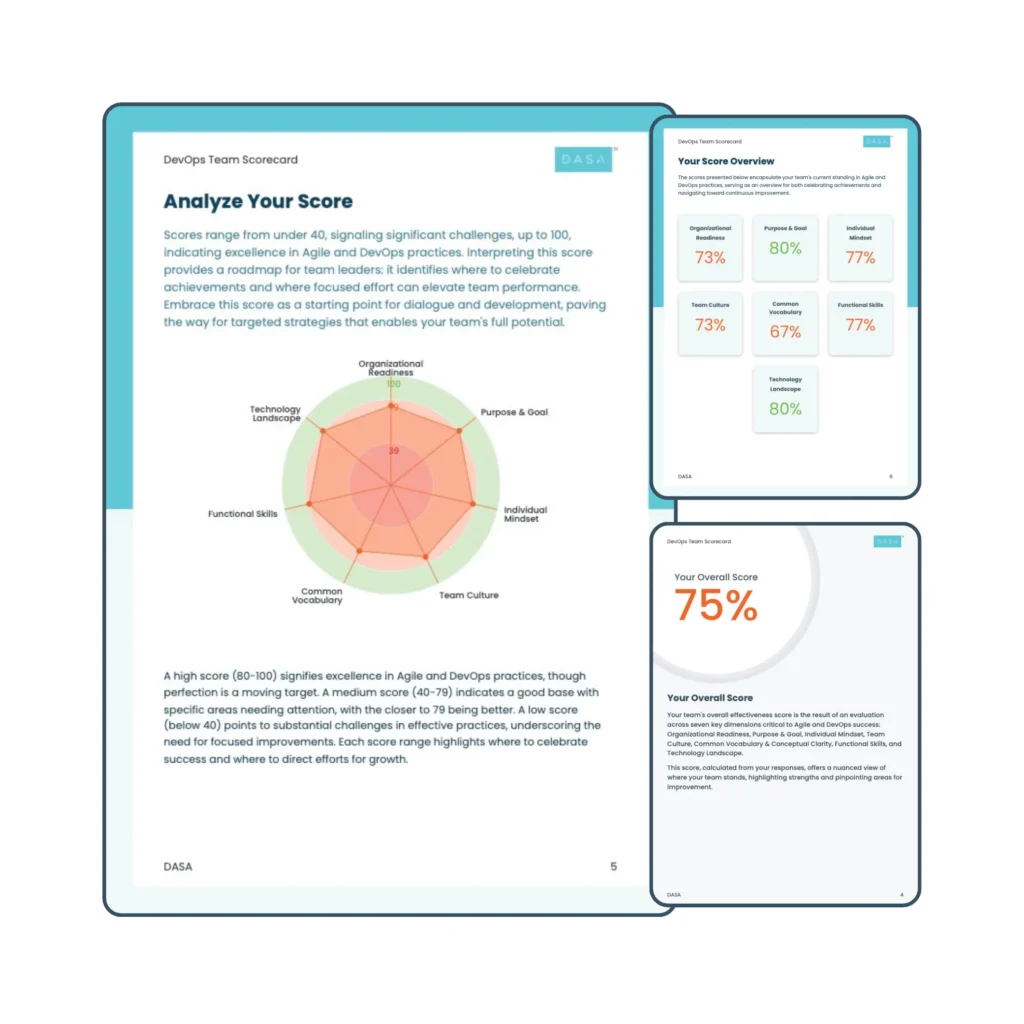Advancing DevOps Excellence
4 tracks ○ 5 hours total
This journey provides professionals with the skills to enhance their DevOps capabilities by adopting a customer-centric approach, integrating security best practices, and aligning reliability engineering with modern platform strategies.
Recommended For






Capabilities this Journey Builds
- Delivering customer-focused DevOps solutions.
- Implementing DevOps-platform engineering alignment.
- Embedding security in development workflows.
- Enhancing system reliability with next-gen SRE practices
Tracks in This Journey
Customer Centric Action
- Identify different aspects of value.
- Distinguish between different types of Voices, such as customer, process, business, and regulator.
- Explain the difference between requirements and wishes.
- Develop a stakeholder plan.
- Explain the benefits of Lean Startup.
- Decide how to use Lean Startup as an approach.
- Prioritize intended results based on story mapping.
- Create a story map.
Relationship Between DevOps and Platform Engineering
- Articulate the relationship between team topologies, DevOps anti-types, and the emergence of Platform Engineering.
- Identify the interplay of DevOps concepts in Platform Engineering.
Foundations of SecOps, DevSecOps, and Intelligent Continuous Security™ (ICS)
- Explain the current cybersecurity threat landscape and classify common threats such as ransomware, supply chain vulnerabilities, phishing, and social engineering.
- Describe specific security challenges, including advanced threats (APTs, zero-day vulnerabilities), insider threats, and emerging challenges (Deepfakes, 5G weaponization).
- Explain the roles of SecOps and DevSecOps frameworks in mitigating modern cybersecurity threats.
- Compare the limitations of SecOps and DevSecOps frameworks when addressing sophisticated threat actors, emphasizing vulnerability gaps.
- Explain the history of SecOps and DevSecOps frameworks and their evolution toward Intelligent Continuous Security (ICS).
- Define Intelligent Continuous Security and outline its benefits, focusing on agility, automation, scalability, and the ability to counteract advanced threats.
- Explain threat modeling techniques and their application in identifying security gaps.
- Summarize how ICS bridges the gaps between SecOps and DevSecOps to enhance security maturity in organizations.
Intelligent Continuous Security is a Trademark of Engineering DevOps Consulting.
The Need for SRE Next Gen
- Discuss the limitations of traditional SRE practices in addressing the complexities of modern environments.
- Explain the impact of technological advancement on SRE.
- Describe the implications of using open-source technologies.
- Explain effective selection strategies for open source and other platforms and services.
- Outline the challenges associated with navigating multi-cloud and hybrid architectures.
- Define SRE Next Gen.
- Analyze the shift in the role of SREs from reactive problem solvers to proactive reliability architects and business enablers.
- Highlight the new skill sets and tools needed for SRE professionals.
- Discuss the evolving relationship between development, operations, and reliability teams in the SRE Next Gen environment.
Turn Roles Into Results With Focused Learning Paths
DASA Learning Journeys provide a structured approach to building foundational knowledge and common vocabulary required for your teams to align and execute your strategy. Each journey consists of modular courses, short programs, expert videos, and thought leadership content aligned to real-world roles, measurable outcomes, and your organization’s transformation goals.
Role-Based Capability Building
Each learning journey focuses on developing the capabilities that matter most for teams and leaders, equipping them with the skills, knowledge, and mindset needed to thrive.
Reduce Transformation Risk
Without the right alignment, even the best strategy can stall. Learning journeys help you upskill your teams in areas that directly influence flow, agility, and value delivery.
Accelerate Results With Proven Content
You’re not starting from scratch — you’re implementing a trusted, field-tested approach that drives performance and scales with your needs.
Bring This Learning Journey Into Your Enterprise
License this track to give your teams access to guided, high-impact learning tailored for today’s performance-driven digital organizations.

Your Team’s Strengths. And Blind Spots.
Every great transformation starts with a baseline. Use the Digital Team Capability Scorecard to assess your team’s performance across critical areas. It’s fast, free, and built for leaders who want measurable results.

Quickly identify critical areas for improvement, focusing on attitude, behavior, and team culture.
— Marian Draganov, T-Systems
